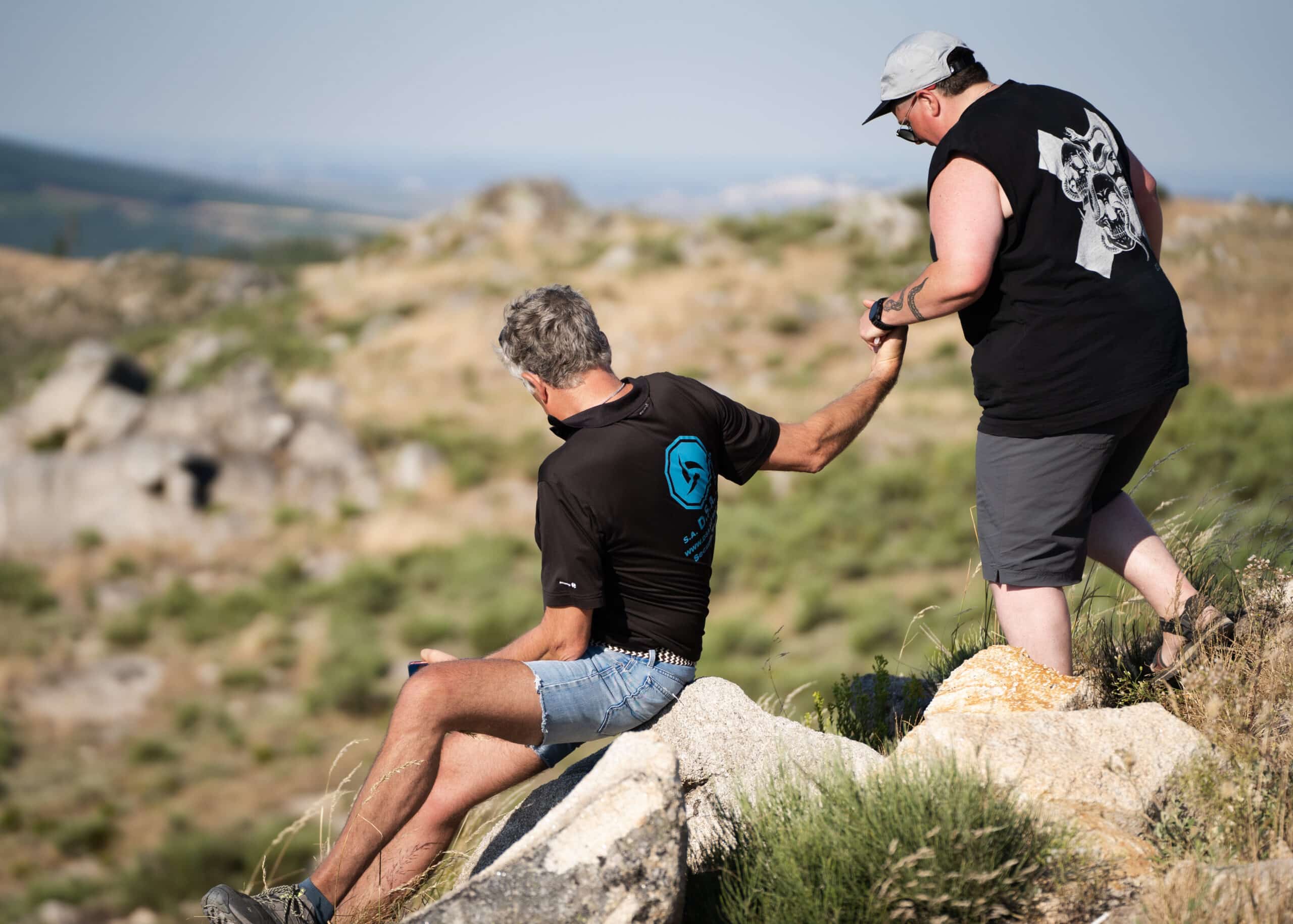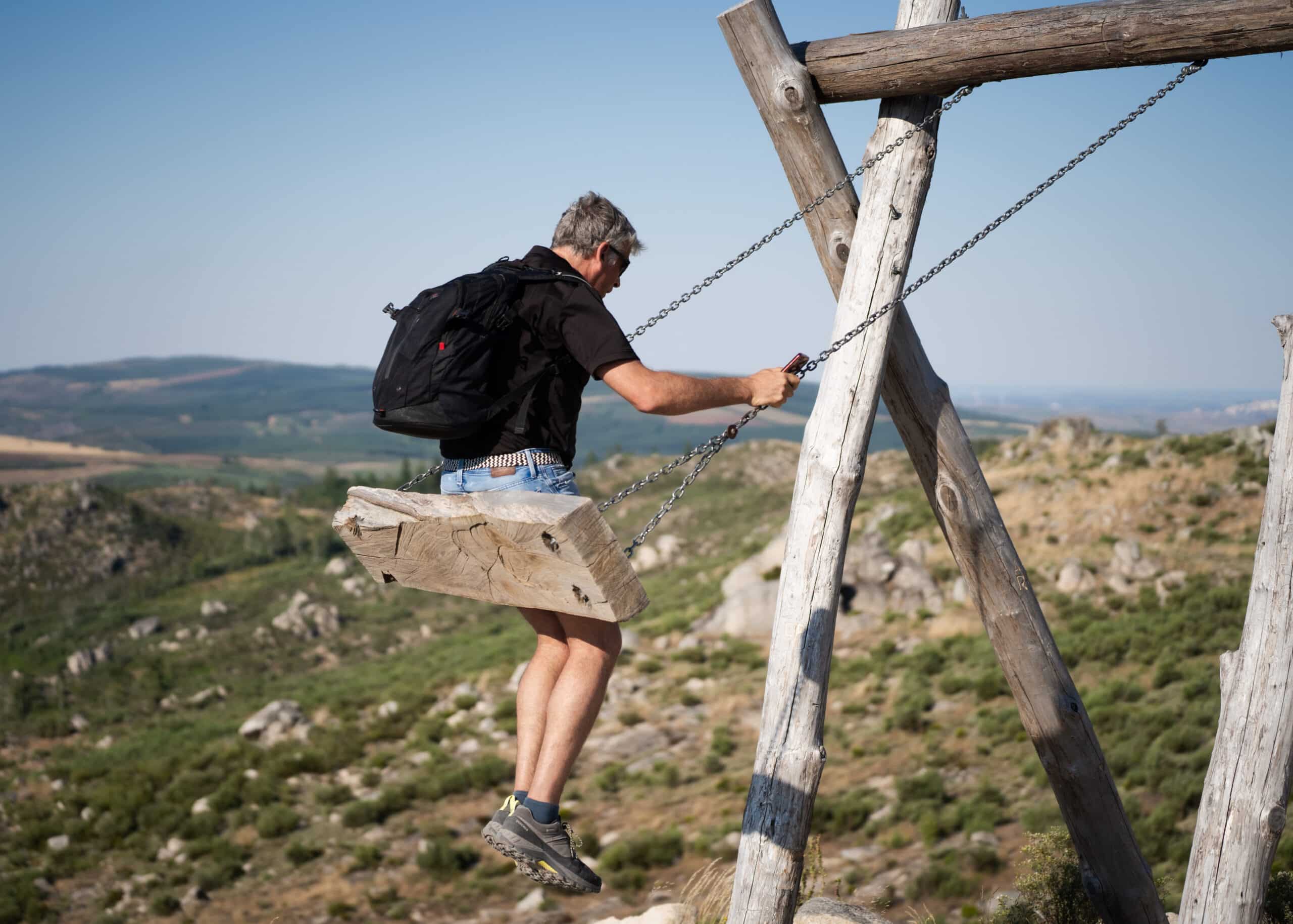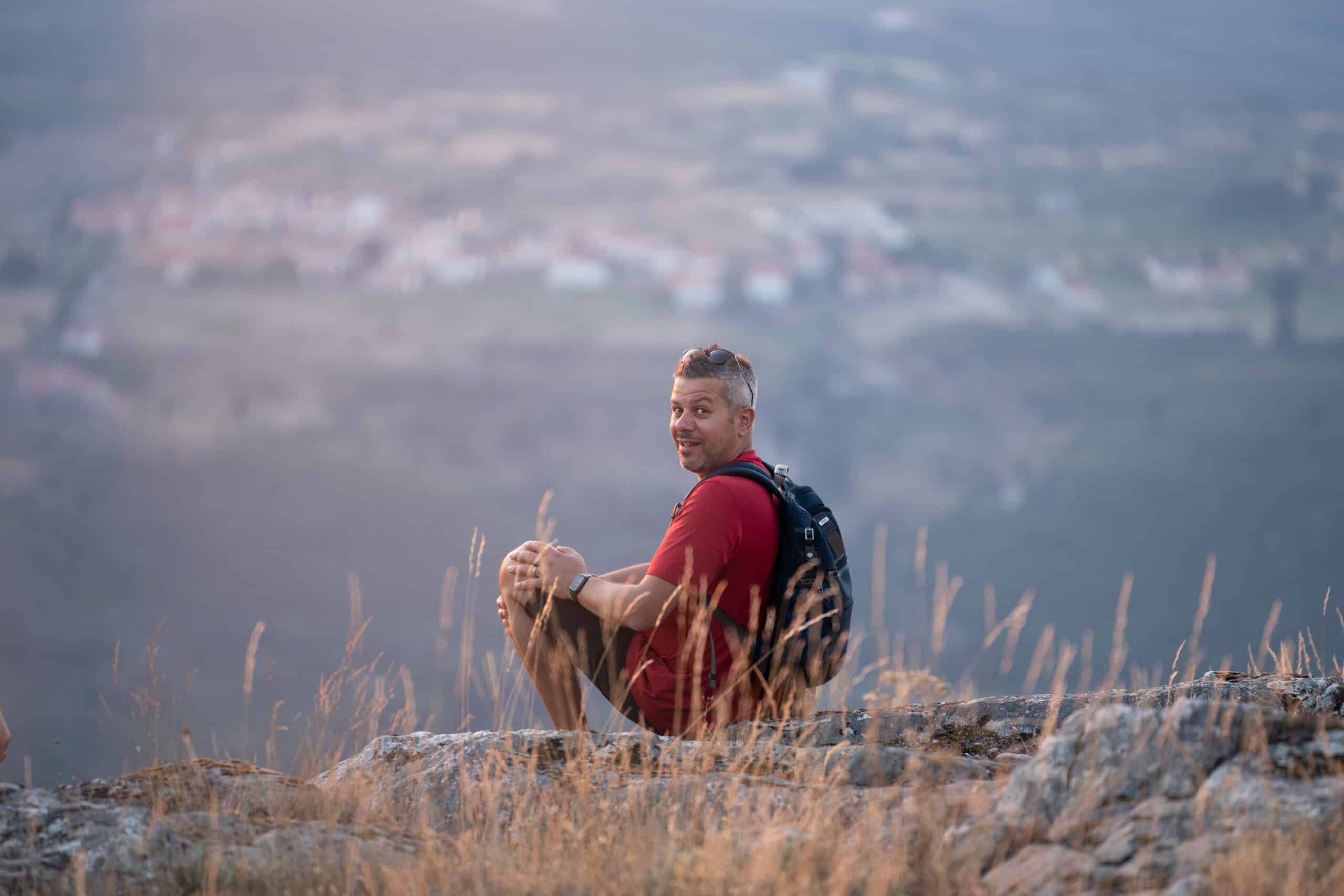How New Life Portugal can hep
The Positive Effects of being in nature and the wild
I know for myself the positive difference I can feel just by stopping what I am doing, taking a break outside in nature, and connecting to myself, my breath, the elements; feeling the wind on my face and the freshness of the air as it enters my lungs. Allowing some time for the busy mind to have a rest!
Health and happiness
There is more and more research showing that time in nature improves happiness and
well-being. Jeremy Coles, writing for BBC Earth reports on the ‘Doing Something Wild
Study’. The study showed that there was a scientifically significant increase in people’s health and happiness, in connection to nature and active nature behaviours.
Results showed remarkably that the number of people reporting their health “Excellent” increased by 30% and this improvement in health being predicted by the increase in happiness and brought about by the change in connection to nature. “This shows clearly that we need nature for our health and well-being”. (Jeremy Coles and Dr Richardson, M. 2016)

Calming and Less Stress
Nature helps me to feel more grounded and present. Sometimes, even in the midst of strong winds and rain, I can be in nature, surrounded by trees and greenery, and more easily let go, relax and feel calmer. With that said, a beautiful beach, with the sound and smell of the sea, and warm golden sand between my toes, has the same effect!
Adam Alter, in ‘How Nature Resets Our Minds and Bodies’ in 2013, presented research of how natural environments refocus our attention, lessening stress and hastening healing. That man-made landscapes bombard us with stimulation, while nature restores mental functioning.
Psychologists call it attention restoration theory, or ART. According to ART, urban environments are draining as they force us to direct our attention to specific things, like signs, other people, dodging traffic. Forests, oceans and lakes demand very little and give us space in stillness to relax and replenish.
Also, in nature there are fractal patterns, which reduce stress and have a calming effect. Fractals are repeating patterns that are similar or identical, like leaves, snowflakes, flowers or the ocean waves. Experiments have been done using eye tracking equipment, fMRI imaging and other brain measurements that show we have hard wiring that responds to certain forms of fractals in nature.
From my experience working with the Wilderness Foundation UK, walking into a forest and setting up camp under the canopy of trees, with the fractal patterns of the leaves above and sunlight flowing through, has a completely different feel than being under a man-made gazebo or parachute above. The participants felt the same, and this environment was a wonderful space for them to experience something much different to their usual strong stimulus, like computers, television, films and the city.
The results of studies show that exposure to fractal patterns in nature can reduce stress by 60% and occurs because of a certain physiological resonance within the eye. So, taking a walk-in nature, visiting a garden, watching the clouds whilst noticing the patterns can lower stress and bring more relaxation and peace.
Research published in the journal Landscape and Urban Planning states that adults who lived in areas with predominantly green space have lower levels of cortisol, the stress hormone. Being in nature can have a healing effect and can help reduce feelings of fear, anger and lowering blood pressure.
Self-Esteem and Healing
In a report from Steve Taylor Ph.D. ‘The Power of Nature: Ecotherapy and awakening’ in 2012, he talks of a study by Mind and University of Essex which found that out of a group of people with depression, 90% reported feeling a higher level of self-esteem after a walk through a country park and that 94% with mental illness believed contact with nature put them in a more positive mood.
As well as healing our minds, nature can also transform us, with research into ‘awakening experiences’ – moments when our vision of our surroundings becomes more intense, more beautiful and some deeper meaning transpires, with more connection to nature, ourselves and others, and greater feelings of well-being.
Taylor states “My research consistently shows that contact with nature is one of the most frequent triggers of these experiences – in fact, around 20 percent of them. But the main reason why nature can heal and transform us, I believe, is because of its calming and mind quieting effect. In nature, our minds process a lot less information than normal, and they don’t wear themselves out by concentrating. And most importantly, the beauty and majesty of nature acts a little like a mantra in meditation, slowing down the normal ‘thought chatter’ which runs chaotically through our minds. As a result, an inner stillness and energy fills us, generating a glow of being and intensifying our perceptions”.
In some cases nature significantly improved the symptoms of Attention Deficit Hyperactivity Disorder (ADHD), having a calming influence and helping their concentration. When surrounded by trees and animals, they are less likely to have behavioural problems and can focus better on tasks.

Increases Energy and resilience
Being outside in nature makes people feel more alive, finds a series of studies published in June 2010 of the Journal of Environmental Psychology.
“Nature is fuel for the soul” says Richard Ryan, author and a professor of psychology at the University of Rochester. “Often when we feel depleted, we reach for a cup of coffee, but research suggests a better way to get energized is to connect with nature.
Research has shown that people with a greater sense of vitality don’t just have more energy for things they want to do, they are also more resilient to physical illness”. How many times do you feel tired in the day and go for a coffee or sugary treat to boost your energy?
When we don’t listen to the body, and continually push ourselves, we may be continually stuck with high cortisol (the stress hormone) in the body, and jumping artificially from low energy to high energy, which isn’t sustainable and at some point the body will be too depleted and drained to respond, potentially leading to a serious burnout.
There is so much research out there that shows being in nature can give you the same little ‘kick’, but why just take the research as the truth, give your intellectual mind a break, and experience it for yourself!
Relieves Depression
A large-scale study in the journal Ecopsychology, Vol. 6 in 2014 titled ‘Examining Group Walks in Nature and Multiple Aspects of Well-Being found “Group walks in nature were associated with significantly lower depression, perceived stress, and negative affect, as well as enhanced positive affect and mental well being, both before and after controlling for covariates.
There were no group differences on social support. In addition, nature-based group walks appear to mitigate the effects of stressful life events on perceived stress and negative affect while synergizing with physical activity to improve positive affect and mental well-being”.
A report in Harvard Health Publishing in 2018 by Dr. Jason Strauss states ‘Research in a growing scientific field called ecotherapy has shown a strong connection between time spent in nature and reduced stress, anxiety, and depression.
It’s not clear exactly why outdoor excursions have such a positive mental effect. Yet, researchers compared the brain activity of healthy people after they walked for 90 minutes in either a natural setting or an urban one. They found that those who did a nature walk had lower activity in the prefrontal cortex, a brain region that is active during rumination — defined as repetitive thoughts that focus on negative emotions.
“When people are depressed or under high levels of stress, this part of the brain malfunctions, and people experience a continuous loop of negative thoughts,” says Dr. Strauss. Digging a bit deeper, it appears that interacting with natural spaces offers other therapeutic benefits. For instance, calming nature sounds and even outdoor silence can lower blood pressure and levels of cortisol, which calms the body’s fight-or-flight response.
When we have something nice to focus on, like trees and greenery, it helps to distract the mind from the usual negative thoughts, and can act as a great way of resourcing ourselves.

Boosts Creativity
There is research showing that spending time in nature can improve our creativity. A report ‘Creativity in the Wild: Improving Creative Reasoning through Immersion in Natural Settings’ says “Attention Restoration Theory suggests that exposure to nature can restore prefrontal cortex-mediated executive processes.
Exposure to natural settings seems to replenish some, lower level modules of the executive attentional system. Four days of immersion in nature, and the corresponding disconnection from multi-media and technology, increases performance on a creativity, problem-solving task by a full 50% in a group of naive hikers.
The results show an advantage if we spend time in a natural setting, as we have an increase in natural stimuli that are emotionally positive and less stimulating than the normal exposure to technology and our days filled with multi-tasking. So if you have been actively using your brain for a multitude of purposes, if you let go of the social media, the gadgets, the stimulus, doing five tasks at once, and instead go for a walk, you allow the pre-frontal cortex to recover, and this is when you might see a sudden burst of insight, intuition, creativity and lighter feelings of vitality and well-being.
As we can see there are many scientific studies and research that can show the benefits of being in nature. Generally in life we may find unhealthy ways of coping with our stress, challenges, traumas, emotions and thoughts. This may be by working all hours of the day, addictions to drugs, alcohol or sex, extreme exercise, binge watching series, reaching for sugary and unhealthy snacks. We find many ways to cope and avoid, yet here we have another option.
The Positive Effects of being in nature and the wild
We can lower stress, boost our energy, relieve depression, grow our self-esteem, feel healthier and happier just by being in nature. Rather than reaching for less healthy coping mechanisms, we have access to a more nourishing way to resource and empower ourselves. I strongly encourage you to spend more time outside, in connection with yourself and the beautiful nature.